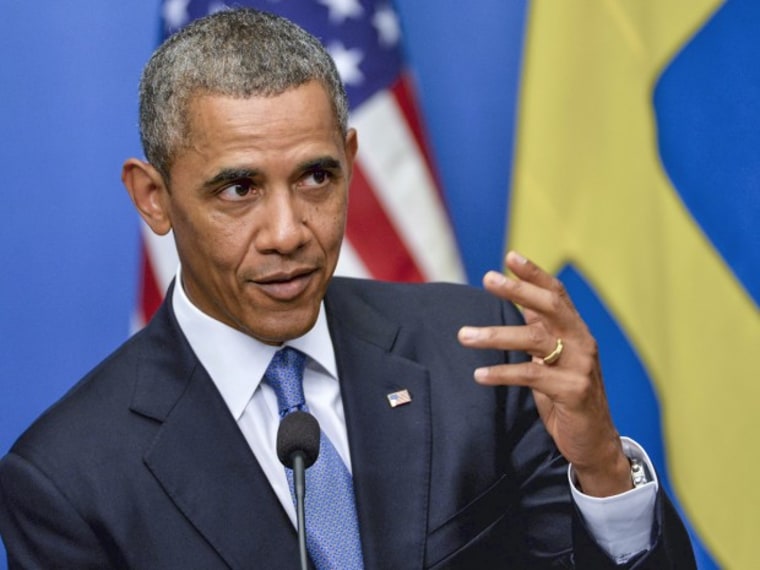On Wednesday's NOW with Alex Wagner, Alex played some clips of President Obama in Stockholm speaking about the need to intervene in Syria and asked the panel to react to his dubious contention that "my credibility is not on the line, the international community's credibility is on the line."
The New Yorker's Dexter Filkins noted that while the president would inevitably bear responsibility for any future action, there's truth to his assertion that an international red line was crossed.
"I think the president's right in the sense that of course it's his red line, but it's also true that 98 other countries signed the chemical weapons treaty," Filkins said. "It's just the same old story of how many countries are willing to act."
In testimony before the Senate Foreign Relations Committee yesterday, Defense Secretary of Defense Chuck Hagel specifically cited France, Turkey, Saudi Arabia and the U.A.E as willing to support military strikes.
Filkins also noted that Saudi Arabia and Qatar were providing significant support to the Syrian rebels.
NBC Chief White House Correspondent Chuck Todd said all the recent talk about international red lines was an appeal not just to international partners, but also a calculated political message aimed at House Republicans.
"This was the president's attempt to say 'stop making this about me personally," Todd told NOW. "We know that this is an issue with some House Republicans, where they may be in favor of the policy in general, but if it's viewed as somehow about the president personally then it becomes a political hot potato for some on the right."
While the final measure is expected to pass the Democratic-controlled Senate, predicting the vote in the lower chamber is an inexact science.
The panel also discussed whether President Obama could realistically proceed with military strikes should a vote fail in Congress.
"Could he legally do it? He could. Would he? I think, no way does he do that," Todd said. "Talk about destroying the relationship between the executive branch and the legislative branch."
